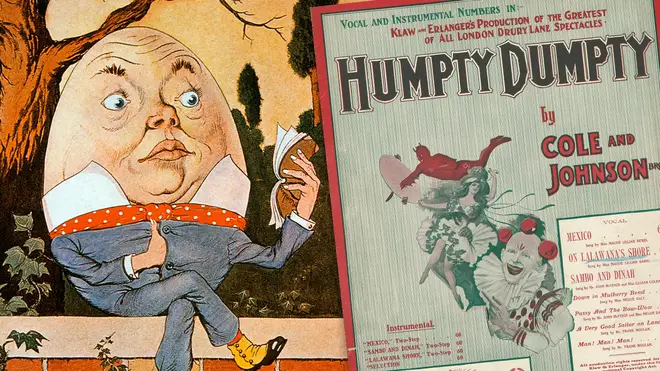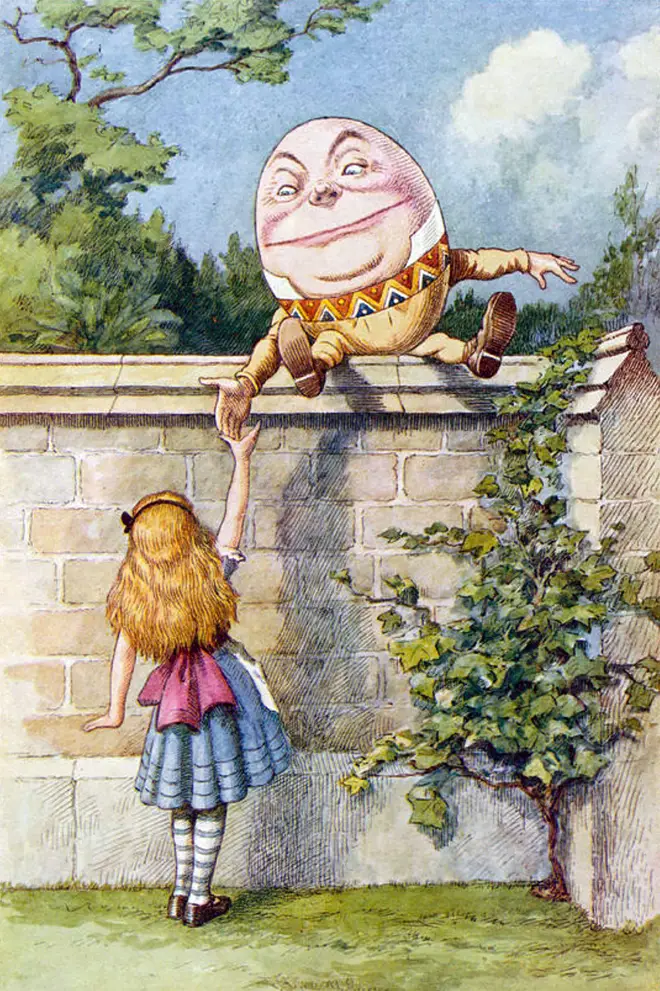On Air Now
The Classic FM Hall of Fame with Margherita Taylor 3pm - 6pm
30 July 2021, 09:40

We explore the origins, history and lyrics of one of the most popular children’s songs in the English-speaking world.
Humpy Dumpty sat on the wall is one of the nation’s most enduringly popular nursery rhymes.
But who was Humpty Dumpty? What brought him to that wall? And how did he fall off?
We unpack the origins, history, lyrics and meaning of one of the most well-known children’s songs in the English-speaking world.
Read more: ‘Old MacDonald Had a Farm’ reworked in the style of Beethoven is a stroke of genius
In 1870, a chap called James William Elliott included ‘Humpty Dumpty’ when he collected together a load of English nursery rhymes and songs, set them to music, and published them in a volume called Mother Goose’s Nursery Rhymes and Nursery Songs Set to Music, with beautiful engravings by London engravers, The Brothers Dalziel.
Before that, the rhyme can be traced back to the 18th century, and variations in lyrics (see below) have been recorded over time. It’s not clear who originally conceived the four-line poem.

Humpty Dumpty | Kids Songs | Super Simple Songs
Humpty Dumpty is the protagonist of the English nursery rhyme, ‘Humpty Dumpty Sat on a Wall’.
Perhaps due to his fragility revealed in the fall, he has often been portrayed as an egg – including by actor George L. Fox in his Broadway pantomime Humpty Dumpty, and by Lewis Caroll in his weird and wonderful Alice’s Adventures in Wonderland.
Read more: There are lyrics to ‘Happy Birthday’ that you literally never knew about
There are other theories around the meaning of ‘Humpty Dumpty’. Some historians believe Humpty Dumpty was simply a device for a riddle around breakable things.
Others have suggested that Humpty Dumpty is King Richard III of England, who is supposed to have been humpbacked and who was defeated at the Battle of Bosworth Field in 1485.
We could assume Humpty Dumpty is the King, the wall is his reign and fight to preserve power, the fall is his defeat, and ‘All the king’s horses and all the king’s men’ the army that failed to prevail.
Another theory is that Humpty is actually a cannon. During the English Civil War, history says, a one-eyed gunner named Thompson managed to get a cannon – colloquially called ‘Humpty Dumpty’, to the top of the tower of St Mary at the Walls church and wreak untold destruction on the forces below, before return cannon fire dislodged the pair of them. Hence “had a great fall”.

A professor David Daube once had a fourth theory to add. In 1956, he posited that ‘Humpty Dumpty’ might have been reference to an armoured siege engine that was deployed unsuccessfully in the 1643 Siege of Gloucester during the English Civil War. This one was soon dismissed as a bit of a spoof by academics – but not before English composer Richard Rodney Bennett took the plot and ran with it for his children’s opera, All the King's Men.
Interestingly, Francis Grose’s Classical Dictionary of the Vulgar Tongue from 1785 – we’re totally imagining this as the Urban Dictionary of its time – defines ‘Humpty Dumpty’ as “a short clumsy person of either sex; also ale boiled with brandy”, so the rhyme could have derived from either meaning.
Although – we have a bit of a chicken or the egg dilemma here: what came first? ‘Humpty Dumpty’ the Grose definition as chicken, or ‘Humpty Dumpty’ the egg? Take a look at the lyrics, and see what you think...
Humpty Dumpty sat on a wall.
Humpty Dumpty had a great fall.
All the king’s horses and all the king’s men,
Couldn’t put Humpty together again.
Humpty Dumpty sat on a wall,
Humpty Dumpty had a great fall.
Four-score Men and Four-score more,
Could not make Humpty Dumpty where he was before.